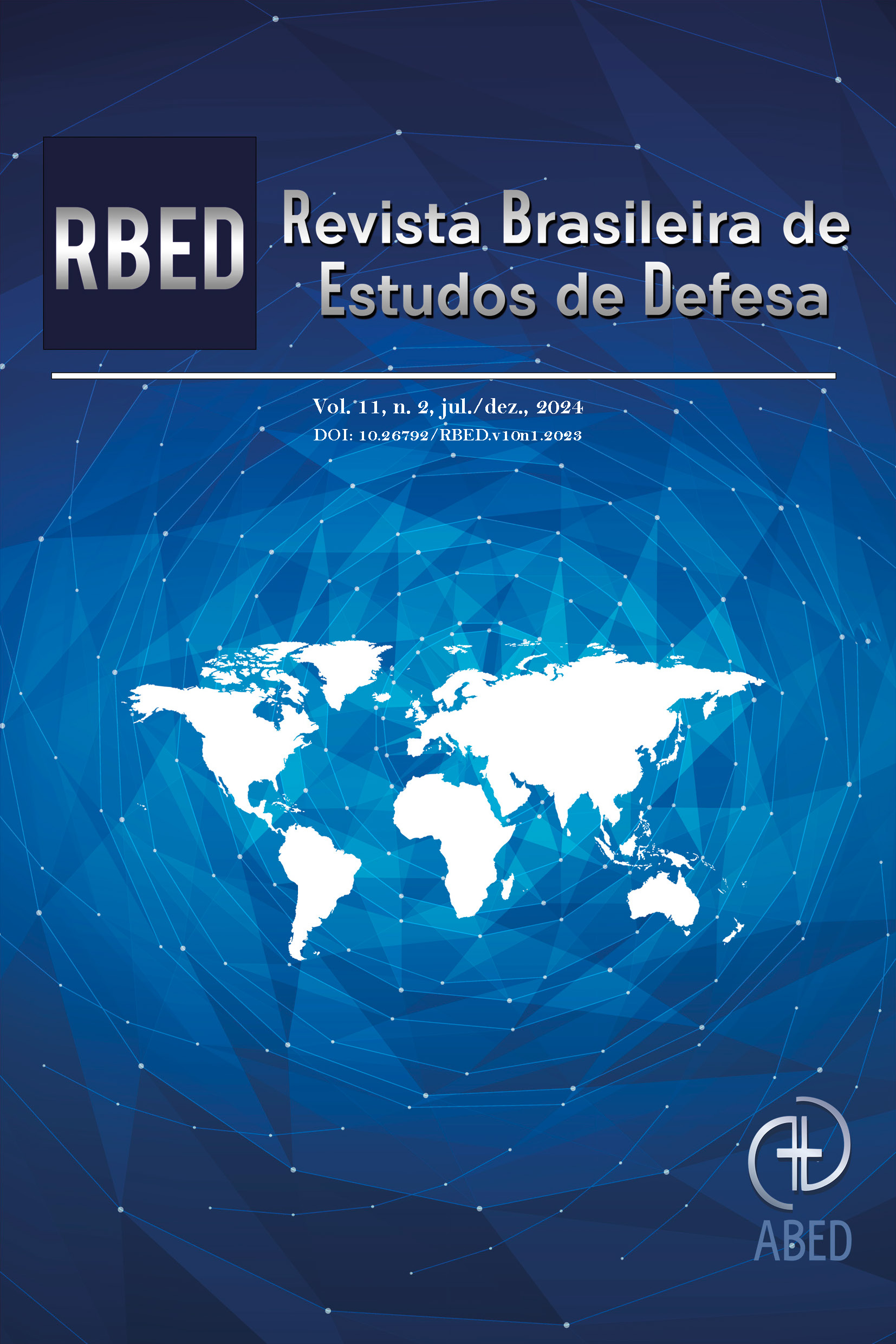Ocean governance for Brazil: from global to local, from military to civil
DOI:
https://doi.org/10.26792/rbed.v11i1.75402Abstract
This article proposes to demonstrate that oceanic governance for Brazil has approaches that historically depart from the international scope, in order to reach the national scope, but effectiveness has not yet been observed at the local level. Moreover, the article also proposes that the oceanic space governance in Brazil still maintains a range of management centered on the military approach, and the Brazilian
Navy’s leading role can be considered as a policy outliner. The article is divided into four parts, the first being the introduction. The second part deals with aspects of the evolution of the term governance, drawing attention to global governance and how elements of governance were transferred to the oceanic space from the international and multilateral scope to regional or national governance frameworks, highlighting the intention of map frameworks at the micro or local level. In this part are punctuated actors, discourses and practices that served as the basis for ocean governance. The third part presents relevant elements of ocean governance for Brazil, the approaches of ocean management and some initiatives that have been carried out in the military and together with the civil agencies. Finally, some conclusions and initiatives will be presented that allow us to think about the future.
Downloads
Downloads
Published
How to Cite
Issue
Section
License
Copyright (c) 2024 Daniele Dionisio da Silva

This work is licensed under a Creative Commons Attribution 4.0 International License.
Autores que publicam nesta revista concordam com os seguintes termos:1) Autores mantêm os direitos autorais e concedem à revista o direito de primeira publicação, com o trabalho simultaneamente licenciado sob a Licença Creative Commons Attribution que permite o compartilhamento do trabalho com reconhecimento da autoria e publicação inicial nesta revista.
2) Autores têm autorização para assumir contratos adicionais separadamente, para distribuição não-exclusiva da versão do trabalho publicada nesta revista (ex.: publicar em repositório institucional ou como capítulo de livro), com reconhecimento de autoria e publicação inicial nesta revista.
3) Autores têm permissão e são estimulados a publicar e distribuir seu trabalho online (ex.: em repositórios institucionais ou na sua página pessoal) a qualquer ponto antes ou durante o processo editorial, já que isso pode gerar alterações produtivas, bem como aumentar o impacto e a citação do trabalho publicado (Veja O Efeito do Acesso Livre).





